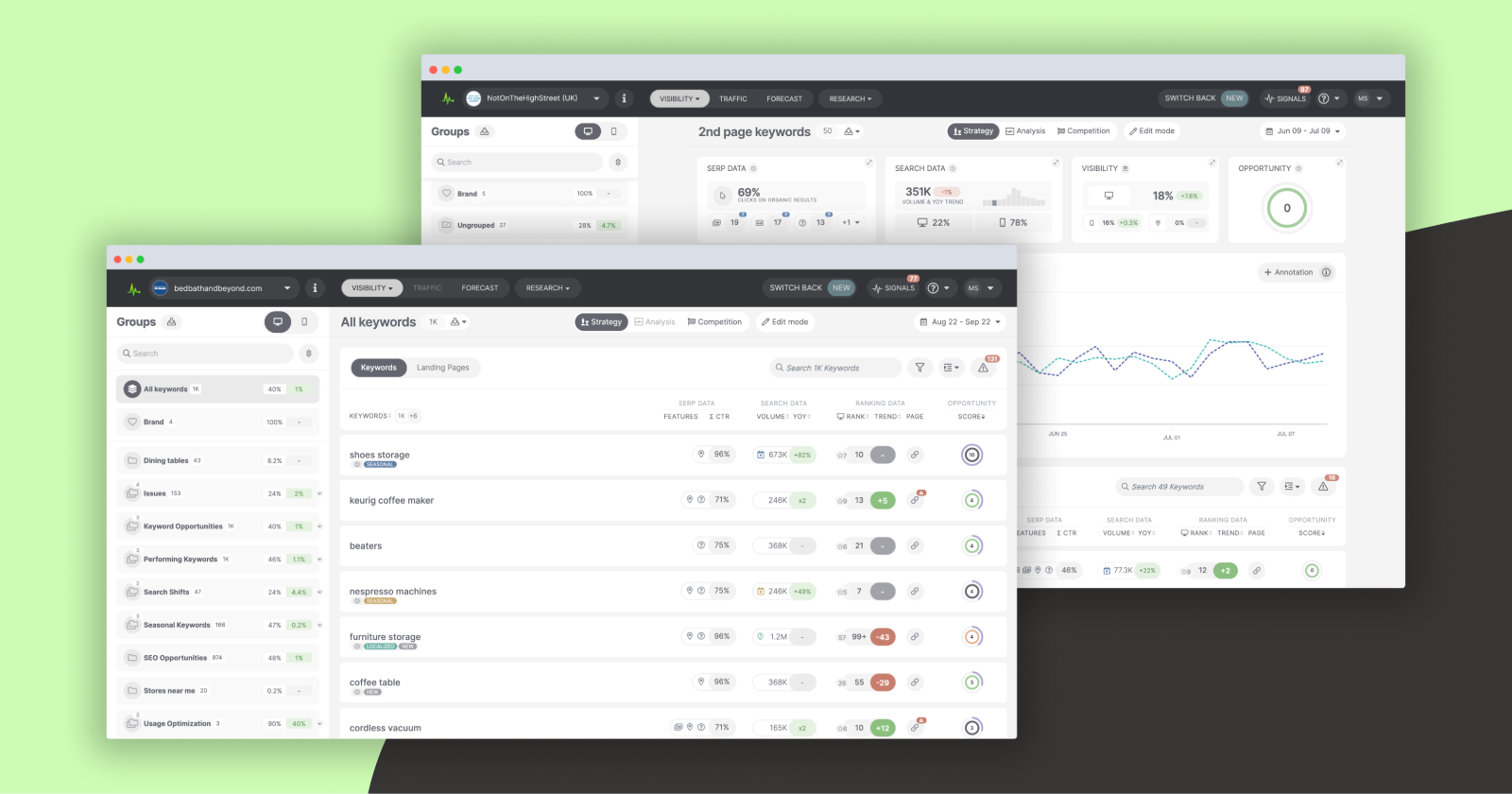You can’t possibly know how a client’s SEO strategy really works unless you have a reliable rank tracker in your agency’s core tool stack.
Rank trackers come in many different shapes and forms, and with varying methodologies that influence your workflows and approaches. Keeping up to date with changes and new features is key.
After all, the way a rank tracker is designed will impact:
- How you include it in your wider business operations.
- What types of data you get.
- When and how you report your SEO performance to your clients.
Here, you’ll find four questions that can help you quickly spot whether the rank tracker you’re considering is suitable for an SEO agency and its specificities.
Let’s get straight to them.
1. Do You Have All the SEO Campaign Data You Need for Every Type of Client?
This question implies two different but equally important factors:
- The way keyword data is structured within the rank tracker.
- What type of keyword data you’re getting.
For the first part, as an agency, you’ll need to be able to manage your client portfolio with efficiency. You don’t want to waste time with too much manual work when setting up a new campaign or creating the monthly report.
The rank tracker should let you:
- Create multiple campaigns for multiple clients.
- Manage ranking data at a global, regional, national, or local level.
- See all your clients and their critical data.
- Keep a constant eye on the competition.
If you see big discrepancies between your ranking data and the search engine, or you get constant high fluctuations in ranks with no external event to explain them, it’s time to reconsider your tool.
Having an integrated agency dashboard with real-time stats about the overall campaign performance, your client portfolio status, account management insights, and even basic revenue data can prove advantageous for your agency business.
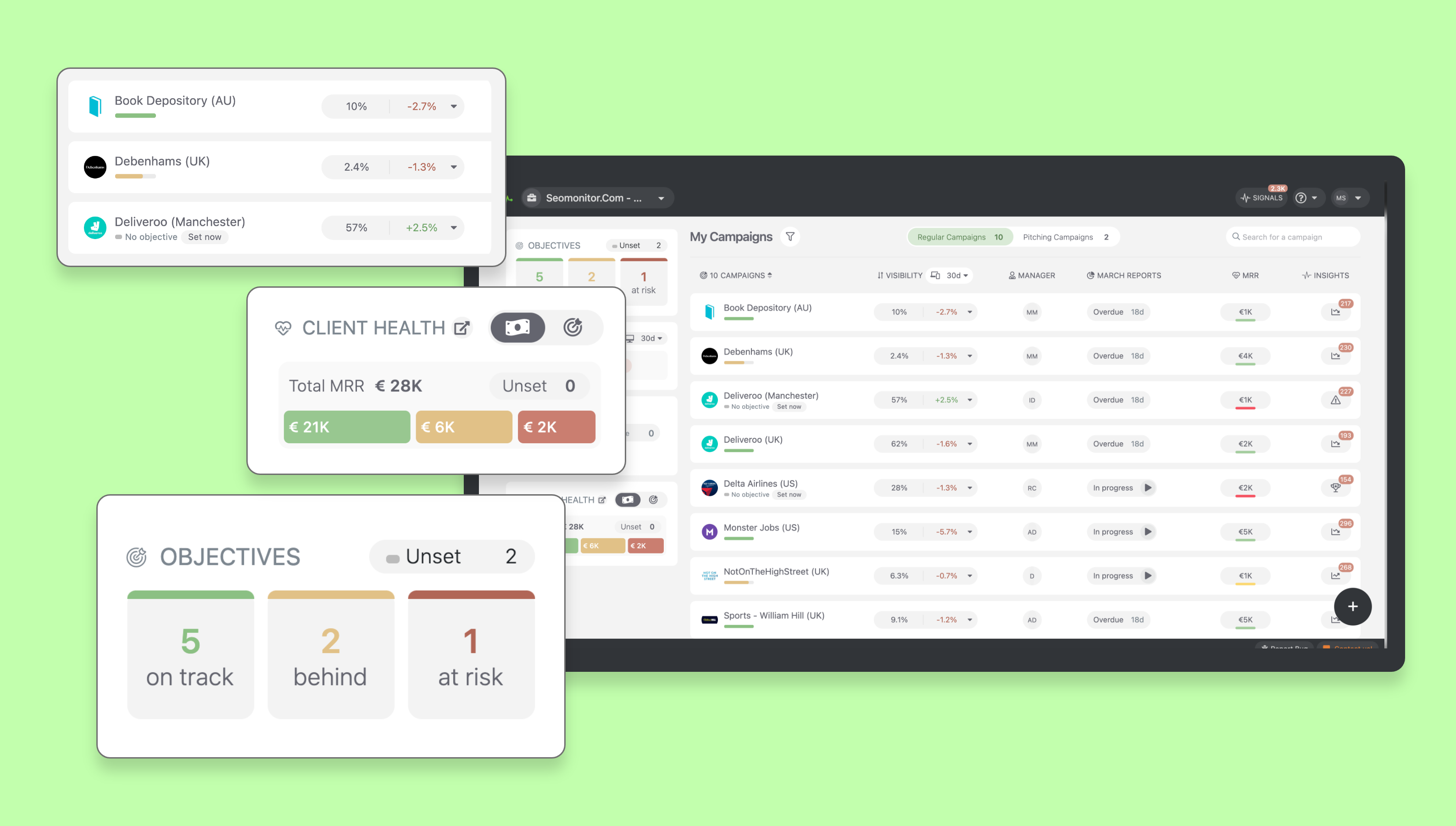
As for the type of campaign data you’re getting, ranks are important in relation to the targeted keywords and their relevance based on:
- “(not provided)” keyword data.
- Monthly search volume data.
- Seasonality.
- Device.
- SERP features.
- Conversion rates.
- Etc.
You need to be able to track keywords and their ranks, plus their trends, and evaluate their quality in a “moving targets” environment. Your SEO strategy is definitely not a “set it once and forget it” kind of thing, so your performance depends on it.
That’s why SEOmonitor’s new rank tracker defines three critical aspects in terms of keyword data:
- Search data: Refers to monthly search volumes and their year-over-year search trend. You can consider those quantity attributes.
- SERP data: Refers to the quality of the keyword, in terms of how many of the searches end up clicking on organic results (those results influenced by SEO). Think about it as an average CTR curve defined for the top 10 positions and for each SERP feature and device mix.
- Ranking data: Refers to performance: the keyword’s rank and its trend, plus landing page issues.

2. Is It Reliable for Your Team & Clients?
We can define a rank tracker’s reliability in many ways, including factors like:
- Accuracy.
- Frequency.
- Accessibility.
Each of the three above can directly affect your campaign management and your agency business. It’s both a question of how your team can use the data and when, and how you report results to your clients (or whether they have access to the raw data as well).
Let’s take a look at them, one by one:
Data accuracy means being able to trust the data is crucial for your day-to-day activity. If you see big discrepancies between your ranking data and the search engine you’re checking or you get constant high fluctuations in ranks and there’s no external event to explain them, then it’s certainly time to reconsider your tool.
Then, in terms of keyword data analysis, not taking into account closed variations, for instance, will double search volume and mislead your proposed tactics.
Not to mention that mixing branded and non-branded keywords will muddle overall search volumes and other critical metrics that make or break your SEO performance.
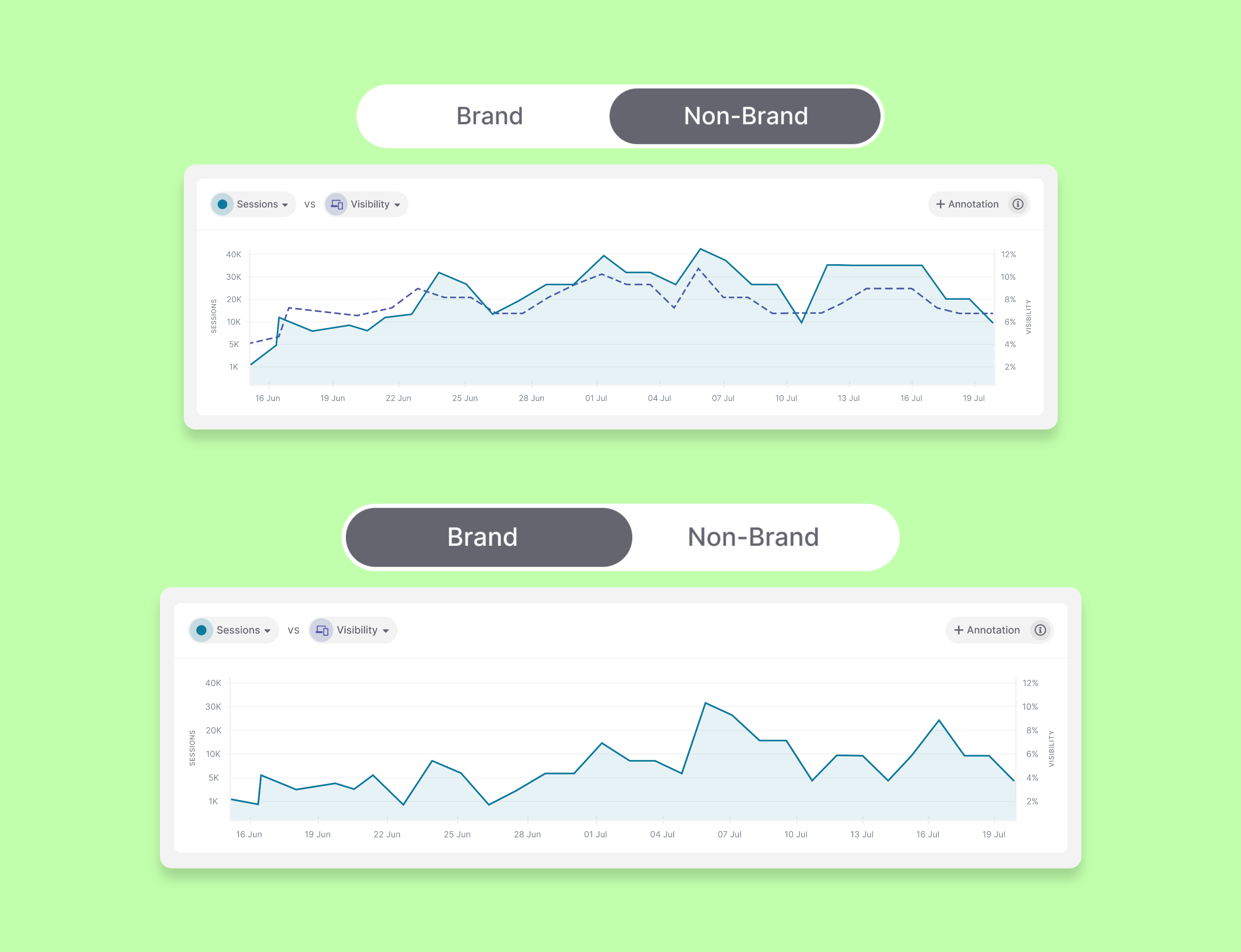
Data frequency is another tricky one. Weekly or monthly data might be good enough, but daily ranks are better in catching a snapshot of your SEO campaign performance and its evolution, so you can spot any issue or opportunity without delay. Plus, you should have that data on both desktop and mobile.
Data accessibility, our third important factor, can also be defined taking into account on the one hand usage, and on the other hand, the ability to easily export, migrate, and report data. Think about things like:
- How many of your team can collaborate on an SEO campaign?
- Do you have API access?
- Can you easily export data for your monthly reporting in Data Studio or other preferred tools?
- Can you invite your clients to the rank tracker?
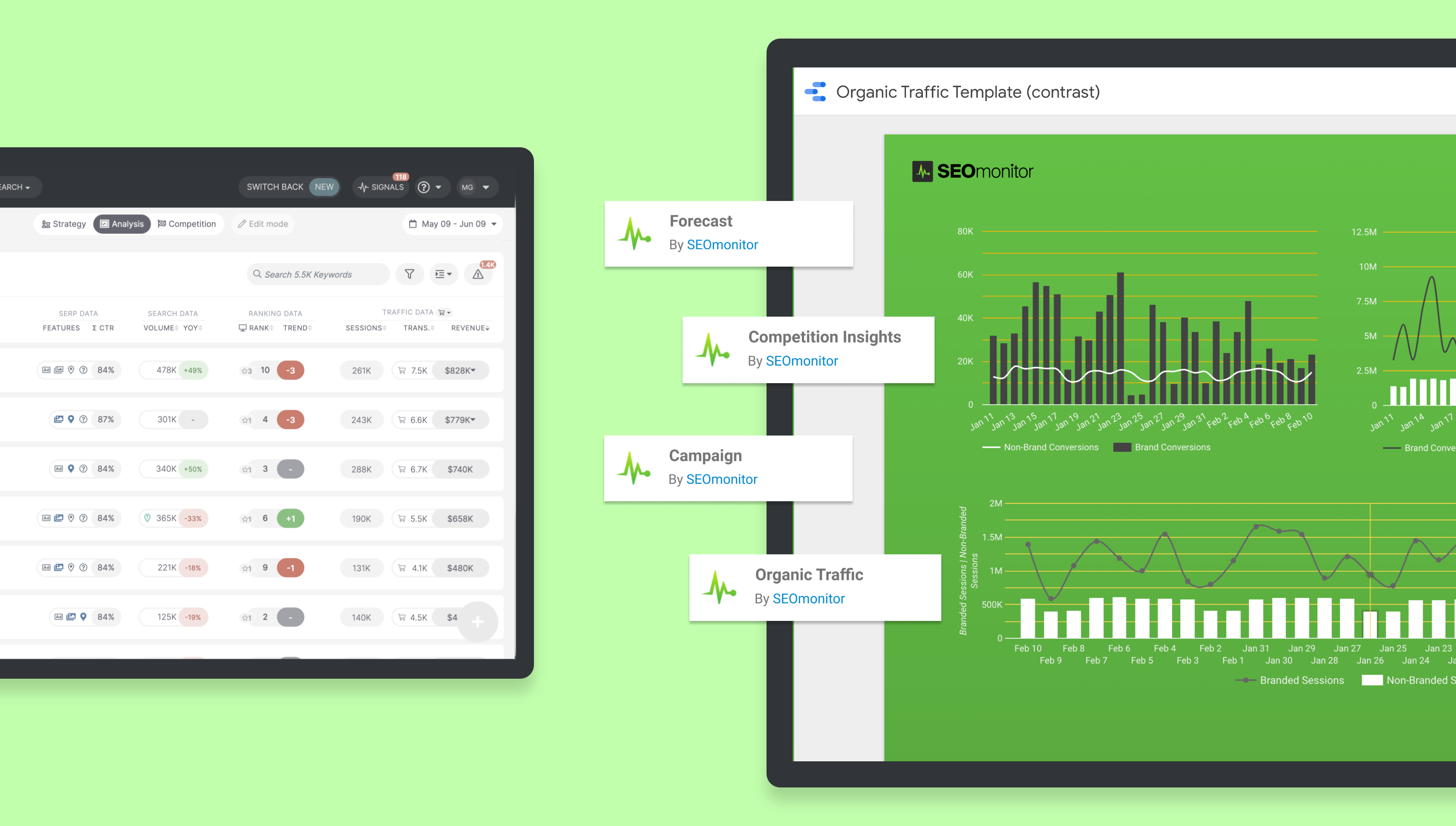
Each will influence the time it takes to do client management tasks and will modify your workflows, sometimes complicating them and keeping you away from the strategic process.
3. How Does It Affect Your Agency Workflows & Key Success Metrics?
Speaking of processes, as we’ve hinted above, the way a rank tracker is designed will influence how you integrate it into your agency and how you choose to explain SEO success.
Keyword Management: Is It Easy to Organize Your Clients’ Campaigns?
For example, there’s the problem of volume and keyword categorization. As an agency, you manage thousands and thousands of keywords, which implies a lot of work in keeping them in control.
You should consider the possibility of grouping them as granular as you want, taking into account how the client’s website categories are set or other key factors like performance, technical issues, landing page, SEO opportunities, competition insights, etc.
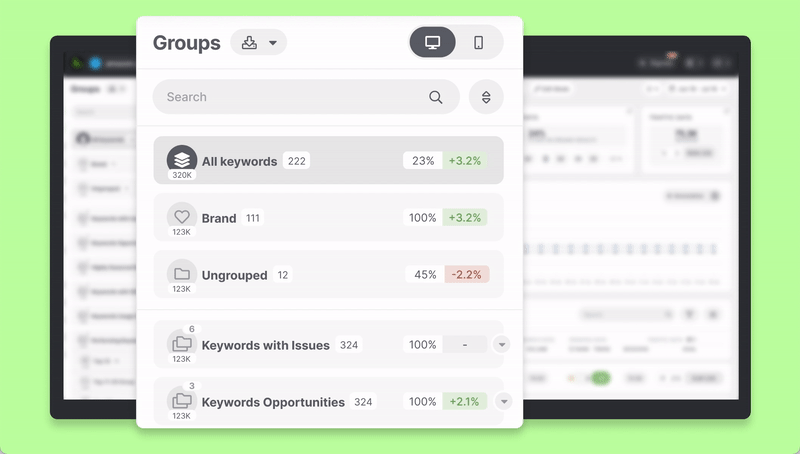
Yet, if you can’t have an overview at a group level, you’ll have to manually check individual keywords or filter all your keywords every time you need to check how your campaign is performing.
That’s a lot of waste in terms of resources and business operations.
The Visibility Metric: How Do You Explain What Happened?
To continue our analysis of keyword groups, there’s also the problem of reliable key metrics to analyze their performance. We know that rank changes are easy to understand and trust, but group-level metrics are not.
That’s why the Visibility metric – and how it’s calculated – is crucial for setting a success benchmark that your clients can rely on.
For instance, keyword stacks might paint a picture, but it’s certainly not the whole picture. Their limitation is that you can’t pinpoint the differences between the keywords in positions 1, 2, and 3, let’s say, or how those keywords and their search volumes affect the overall performance.
Our team at SEOmonitor developed a Visibility metric that takes into account ranks and monthly search volumes and is calculated as an impression share (percentage) weighted against those search volumes. Now, you know how the client’s website fares at any given moment.
Plus, to be able to tell how each keyword in a group performs and if a fluctuation is a cause of concern, you get the Visibility explainer that highlights all you need to know:
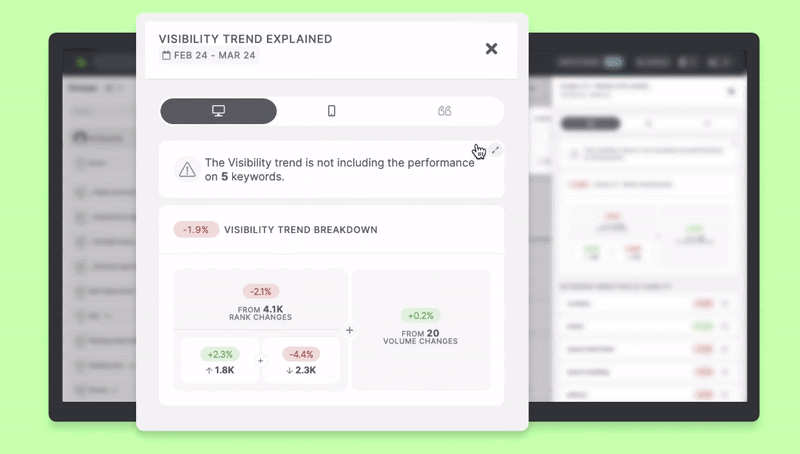
The Keyword Difficulty Metric: How Do You Spot What’s Next for Your Client?
The success of a campaign relies on your agency’s ability to design a realistic strategy. Spotting low-hanging fruit and dismissing “impossible for now” keywords are a big part of that equation.
Having a rank tracker that helps you do that more effectively will be another advantage in optimizing your day-to-day flows.
The Keyword Difficulty metric looks at the interplay between the difficulty to rank in the top 10 positions and their potential, including the competition already in that search space, so it’s clear whether you should bother with them or not, at the moment.
We’re talking about keywords that are relevant for your client, but that would cost too much in terms of time and money. For instance, a newly launched niche retailer selling gardening tools might want to target “bush trimmers,” but Amazon and Home Depot are dominating the search landscape for this query.
The difficulty metric would say “hard”, and it would be a waste of resources to compete there now. In SEOmonitor, this metric is not a general one, but a personalized one – taking into account, among other things, your current topical authority and topical targeting for the landing page you want to optimize.
That’s why, after a few years, if the retailer is highly specialized in “bush trimmers” and becomes established on the market due to your SEO efforts, chances are it can outrank Amazon or Home Depot and the SEO difficulty metric would say “easy” or “medium”.
Knowing from the start how to refine your keyword list and where to focus your attention will impact your process for each new client, for the better.
4. Is It Cost-Effective for Managing Multiple Clients?
Apart from the functional aspects and whether it’s designed to be easily embedded into your agency processes, there’s the question of cost.
- The resources you need as your client portfolio grows versus price growth.
- The number of users allowed in the tool versus monthly costs.
- Do you need to pay extra for a device, API, data exports, or other actions regarding datasets?
- Are there other hidden costs? (For migrating or integrating into other tools, for instance.)
Each of these variables will impact how you think about costs and how you create client budgets, so you need to crunch the numbers wisely.
It’s also a matter of transparency, as you present cost structures to your clients or even consider inviting them to the rank tracker – so they see your SEO efforts for themselves.
We know this is a pain and that each rank tracker has its own way of defining accessibility, especially when it comes to resource consumption.
At SEOmonitor, we decided to create a flexible pricing policy that includes daily ranks for desktop and mobile as standard, together with access to unlimited users and API.
As our rank tracker is designed for SEO agencies, we understand your business needs and fluctuations.
Join us and our SEO agencies community in the journey to bring more transparency and measurability to the SEO industry!
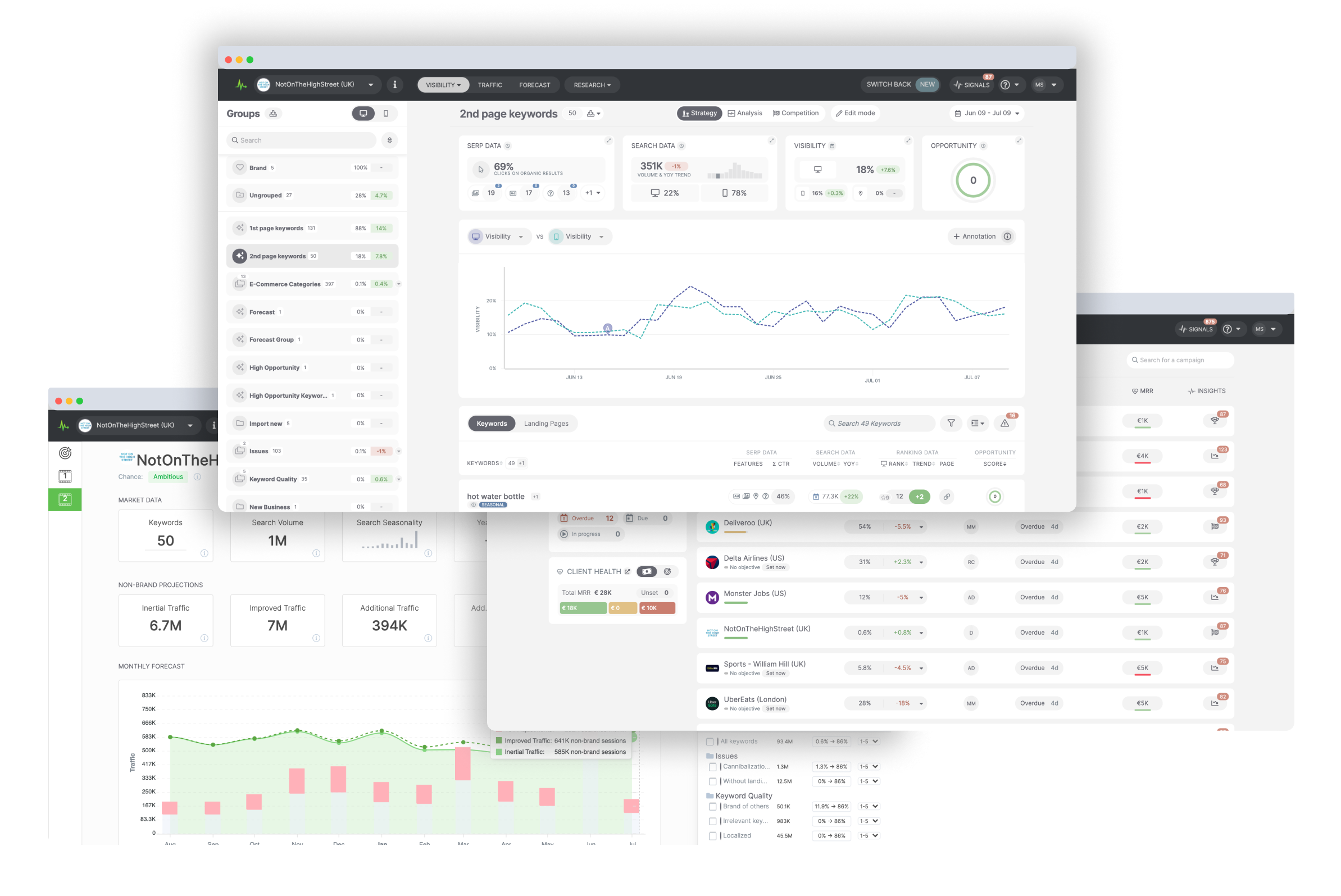
Discover our SEO platform designed just for agencies!
Explore all our featuresThe opinions expressed in this article are the sponsor's own.


